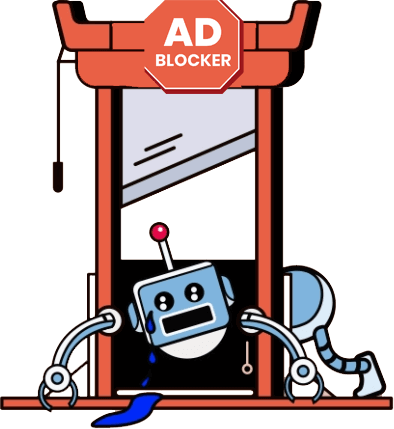In the highly competitive arena of the digital world, business firms as well as researchers and marketers have come to utilize technology to enhance their online presence and rank higher in search engines.
Be it the application of AI-based tools or the latest SEO techniques, the incorporation of cutting-edge solutions has become the need for achieving success. In this very article, the writer covers practical ways to improve online visibility with a strong emphasis on AI-based innovations as well as optimized link-building best practices.
The Rise of AI in Streamlining Online Optimization
Artificial intelligence has rapidly become a cornerstone in digital strategy, offering tools that analyze vast amounts of data and automate complex processes. For example, AI is instrumental in SEO by providing insights into keyword trends, audience behavior and content optimization. Another area where AI has made its foray is link building, which is a very critical component of SEO.
Semi-automated link building earns backlinks from better quality sites to increase a website's authority. On the other hand, modern tools and agencies with specialized strategies in link building-known as "linkbuilding agentur" in the German-speaking contexts-employ AI to ease the process. Such tools analyze linking opportunities, evaluate the quality of sites and track results so that efforts are efficient and effective.
According to Moz, one of the leading authority sites on SEO, backlinks remain one of the top three most important ranking factors. The introduction of AI allows organizations to also focus on high-value linkages, reducing the need for a manual workforce and thus developing meaningful partnership work.
Key Features to Look for in AI-Powered SEO Tools
Ability and limitation are the two important aspects one should know about when choosing an AI-powered SEO tool. The right tool should offer a well-rounded suite of features aimed at enhancing visibility and performance. Key features include:
Keyword Research and Optimization: Advanced tools like Semrush or Ahrefs let one analyze trends, competitor's strategies and search intent for better keyword identification. AI further enhances this with predictive analytics, enabling users to focus on future trends.
Content Quality Analysis: Surfer SEO, powered by AI, analyzes the structure, readability and relevance of content. They ensure that the standards of the content meet what algorithms of search engines call for in terms of maximizing rankings and user engagement.
Technical SEO Audits: AI-driven platforms like DeepCrawl identify technical issues such as broken links, duplicate content, or slow page speeds that might hinder performance. These insights enable developers to resolve problems proactively.
Backlink Analysis: Beyond strategies of link building, AI tools analyze the quality and relevance of the existing backlinks. They highlight toxic links and provide suggestions for replacing them with others that keep websites safe from penalties due to poor-quality connections.
Automation and Reporting: Effective SEO tools drive automation of workflows by providing automated reports with recommendations for further actions, making it easier for professionals to save time while focusing on strategic initiatives.
For instance, studies by HubSpot indicate that companies using AI tools for search engine optimization have seen an increase in their search rankings 30% faster than would have been achieved with traditional methods.
Simplifying Link Building for Better Search Engine Performance
Link building remains one of the most time-consuming and, at the same time, most effective parts of SEO. It is not all about the quantity, but the search engines give more priority to the quality and relevance of links. A strong link-building strategy requires targeted outreach, credible sources and continuous monitoring.
AI tools make link building less painful and difficult by:
Opportunity Identification: AI scours the internet for applicable, high-authority websites of relevance to the niche that any particular brand serves. In this case, the link will surely emanate from a trusted source, something very important for the search engines.
Quality Link Evaluation: Algorithms verify potential backlinks for signals of spamming, domain authority and traffic metrics to make sure only beneficial links are pursued.
Outreach Optimization: Tools like Pitchbox or BuzzStream utilize AI to make outreach emails personalized, thereby increasing response rates. These platforms refine messaging to improve engagement by analyzing previous interactions. Monitoring and Maintenance: AI tracks backlinks' performance over time, alerting users whenever anything changes that may affect rankings.
If a link is removed or becomes irrelevant, the tool suggests alternatives. In fact, according to recent data from Search Engine Journal, websites with consistent link building notice up to a 97% increase in organic traffic after six months.
In any case, effectiveness depends on the links acquired-relevance and quality. For example, an e-commerce website will benefit more from backlinks to highly authoritative blogs or review websites, while a B2B SaaS company may place more emphasis on industry reports or whitepapers that link back to them.
AI tools understand these various strategies and adapt their recommendations appropriately to focus on the different objectives. Conclusion This optimization challenge for online presence and search engine rankings is dynamic and complex. AI-powered tools and platforms greatly facilitate this work, right from technical audits down to content strategies and link building.
While business owners and professionals remain optimistic about this continuous integration of the technology into their workflow, the focus shall still be on quality, relevance and adaptability to changing trends.
By applying AI-powered solutions to the process of SEO, users can better power through the mess and ensure optimal alignment with best practices for measurable results. And with continual innovations still yet to come down the pipeline, the future seems bright for Online Optimization, no doubt, because it will guarantee efficiency and better service delivery for a wide range of stakeholders as well.






